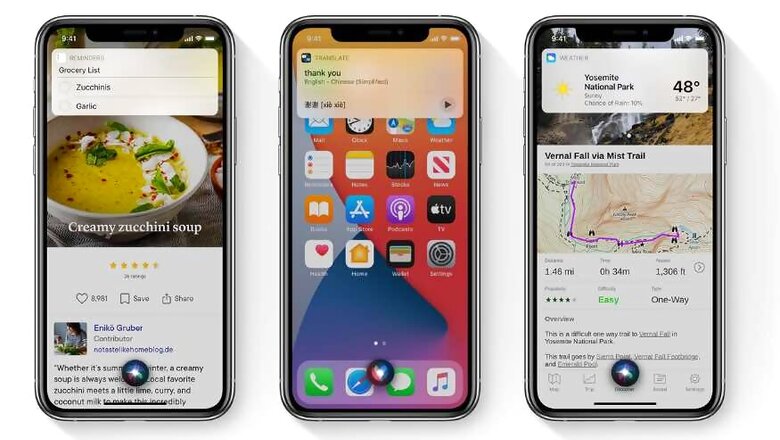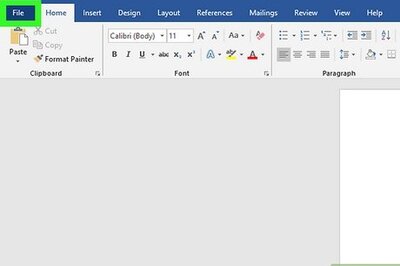
views
Even though the final release of the iOS 14 and the iPad OS operating system for the Apple iPhone and iPad devices are still a few months away, you can now be part of the public beta test that has now been activated. The upcoming releases of the iOS 14 for the Apple iPhone and the iPadOS 14 for the Apple iPad line-up are now available in public beta, which means the anyone who is brave enough to try a software that is still essentially very much in development, can now get on the boat. iOS 14 and iPadOS 14 debuted at the Apple Worldwide Developer Conference (WWDC) last month with the immediate developer beta versions being made available widely. As expected, there are a bunch of new features and changes that the next operating systems for the iPhone and the iPad will bring—there is expanded widget support, App Library, iMessage and Facetime video call app enhancements, visual updates, performance tweaks, new features and privacy enhancements included.
To get the public beta of the iOS 14 and iPadOS 14, you can register on the Apple Beta Software Program website and follow the steps to install the beta profile and then run the software update to get the latest public beta version. However, be advised, while getting the beta software is really simple, you must remember to backup all your important data before you embark on this process. Beta software versions are essentially those under development and may have critical bugs that need to be fixed, even though public beta versions are still more stable than developer beta versions that they succeed. Also, a simple piece of advice—avoid installing these on your primary iPhone or iPad, which you may rely on heavily for communication and work purposes.
If you are an iPhone user, you will be in luck with iOS 14 if you have an iPhone 11, iPhone 11 Pro, iPhone 11 Pro Max, iPhone XS, iPhone XS Max, iPhone XR, iPhone X, iPhone 8, iPhone 8 Plus, iPhone 7, iPhone 7 Plus, iPhone 6s, iPhone 6s Plus, iPhone SE (2nd generation) and the iPhone SE (1st generation). In fact, the iPod touch (7th generation) will also get the iOS 14 update. This means that in the year that has gone by since the iOS 13 update rolled out, no device has lost support and all iPhones that run iOS 13 will get the update to iOS 14 as well. Look at the how far back the update compatibility spans, with the iPhone 6s launched in 2015 being the best example, and it remains hard to beat Apple’s compatibility focus as far as new software updates are concerned.
It is a similar story with the iPadOS 14 as well. If your iPad already runs iPadOS 13 released last year, you will be in line to get the iPadOS 14 when it rolls out later this year—no device has been dropped this year. This means the iPad Pro 12.9-inch (4th generation), iPad Pro 11-inch (2nd generation), iPad Pro 12.9-inch (3rd generation), iPad Pro 11-inch (1st generation), iPad Pro 12.9-inch (2nd generation), iPad Pro 12.9-inch (1st generation), iPad Pro 10.5-inch, iPad Pro 9.7-inch, iPad (7th generation), iPad (6th generation), iPad (5th generation), iPad mini (5th generation), iPad mini 4, iPad Air (3rd generation) and the iPad Air 2 will get iPadOS 14. The list is pretty exhaustive and even the iPad Air 2 launched in 2015 will get the latest operating system.




















Comments
0 comment